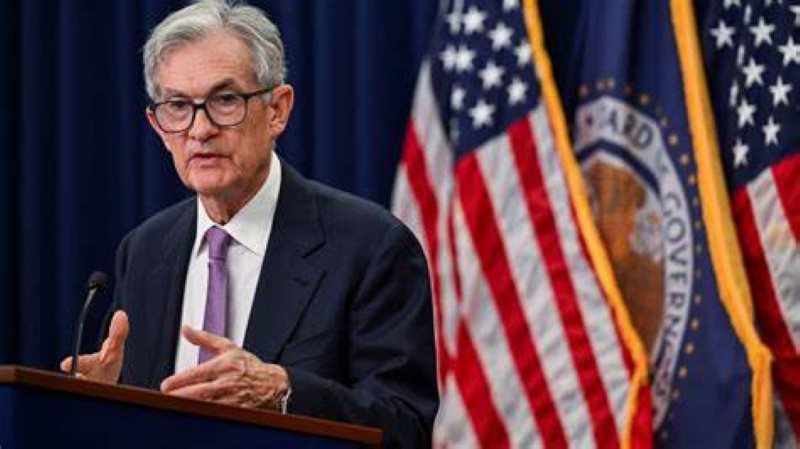Economy
Economic Outlook Darkens, but Economists Still Expect Fed Rate Cuts
Despite a worsening economic outlook in the U.S., economists forecast that the Federal Reserve will cut interest rates twice this year. According to a Bloomberg survey, three-quarters of respondents foresee a recession or economic stagnation. Still, expectations remain for the Fed to lower its benchmark rate in both September and December.
Tariff Imposition Increases Economic Uncertainty
The recent implementation of new tariffs by President Donald Trump, particularly on goods imported from China, is impacting projections. The survey was conducted between April 25 and 30, shortly after the tariffs took effect. Economists are closely monitoring the consequences of these policies on the U.S. economy.
Household Spending Remains Strong
Despite a contraction in Gross Domestic Product (GDP) in the first quarter, household consumption continues to be a cornerstone of the economy. This key component has shown resilience, preventing a deeper slowdown. Businesses are also continuing to hire, though at a more moderate pace compared to previous years.

U.S. Economic Contraction Highlights Perils of Trade Gambit
The U.S. economy contracted at an annualized rate of 0.3% in the first quarter, slightly falling…
Unemployment and Spending: Key Indicators to Watch
Although layoffs remain low, economists are closely watching how changes in fiscal policy, immigration, and deregulation could affect inflation and unemployment. A simultaneous rise in both could create challenges within the Fed’s dual mandate. Many economists anticipate growing difficulty in balancing inflation control and employment in the coming months.
Potential Conflict Between the Fed and the Trump Administration
President Trump has intensified his criticism of the Federal Reserve, creating uncertainty in financial markets. Economists agree that if Trump attempts to remove Fed Chair Jerome Powell, markets could react severely. On April 18, National Economic Council Director Kevin Hassett suggested that Trump might be assessing his authority to dismiss Powell.
Tariffs’ Impact on Inflation
James Knightley, ING’s chief international economist, warns that the impact of tariffs could quickly show up in inflation data. Inflationary pressures may lead the Fed to hold steady in the near term, but a deeper economic contraction could necessitate rate cuts by year-end.
Market Response to Possible Changes at the Fed
Most surveyed agreed that any attempt by Trump to oust Powell would trigger a financial crisis or a sustained negative market reaction. Analysts warn that the already tense relationship between Trump and the Fed could escalate in the coming months, affecting market expectations.


